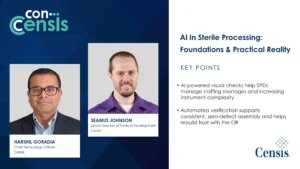Bringing a Technology Driven Approach to Psychiatry
Mental health care is a challenging subset of medicine. There are limited providers, many of whom don’t accept commercial insurance. Then there’s the ongoing stigma that keeps individuals from seeking help, which often leads to treatment in the ER. Technology has helped many industries evolve, and Robert Krayn and Dr. Georgia Gaveras, co-founders of Talkiatry, are doing the same for psychiatry.
Krayn had no plans of starting a mental health tech company, but after a traumatic event, he sought mental health care. “I was insured and in a large city but couldn’t find a provider. I ended up going out of network and paying $400 for the appointment. I knew few people could do this and began having ideas about providing more accessible care for commercially insured patients.”
Dr. Gaveras joined him in the venture, prompted by the same sentiment. “I was managing the psychiatric ER at a big hospital. Those patients didn’t have access to outpatient care and had nowhere else to turn,” she said.
While they didn’t build the platform to be solely for telehealth, the pandemic made it more critical. Talkiatry is a comprehensive platform for providers and patients. “It includes an EMR that’s actually designed for psychiatry because most standard ones aren’t. There’s a telehealth component. Patients can use the app to message providers, have visits, and more,” Krayn said.
In building the platform, it was essential to get health plans to cover the services. Krayn commented, “We built this to partner with health plans. It’s not just to increase accessibility. It’s a comprehensive platform with data and collaboration of care aspects.”
Dr. Gaveras added, “Providers don’t have to worry about the backend stuff. It’s user-friendly and helps them focus on patients.”
The company has plans to continue to improve and expand services. The platform already has high adoption, as individuals struggle with the stress of the current pandemic and political environment. Krayn added, “Our platform is the first time many of our users are interacting with a mental health provider.”










